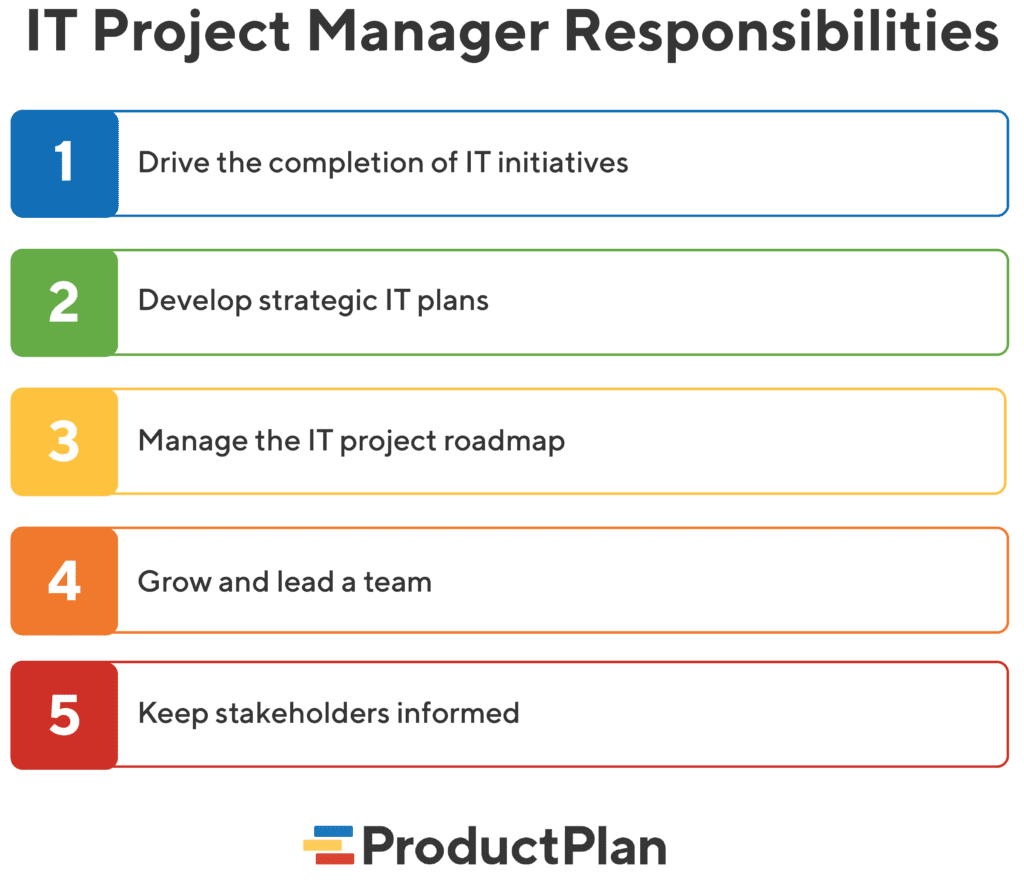What Is an IT Project Manager?
An IT project manager oversees complex projects involving a company’s IT infrastructure. Examples include installing computer hardware, setting up networks, and rolling out cybersecurity systems.
There is a key difference between an IT project manager and project managers in other areas of an organization. For departments such as product development, project management is a tactical role, not a strategic one. Project managers in these departments handle logistical details, such as tracking the status of daily tasks. IT project management differs in that it can also involve strategy.
In many companies, IT project managers are the strategic drivers of IT initiatives. They are often responsible for developing the plan, allocating resources, and managing teams. In some cases, they are also responsible for hiring and training IT employees.
What Is an IT Project Manager’s Job Description?
This position will vary by company and industry. But many IT project management jobs have several responsibilities in common. Here are some typical elements of this position’s job description.

5 Elements of an IT Project Managers Job
1. Drive the completion of IT initiatives.
Plan and communicate the strategic goals of IT initiatives to the relevant teams. Then lead those teams: coordinate their efforts, track their progress, and ensure they have the resources needed to succeed.
2. Research opportunities and threats, and develop strategic IT plans.
Research the industry, the company’s current processes, and new technologies becoming available. Identify opportunities to migrate to new tools and systems that can make the organization more effective. Identify threats, including regulatory and data security threats, and develop plans to counteract them.
3. Manage the IT project roadmap.
Develop an IT project roadmap, which captures the strategic plans of the company’s upcoming IT projects.
4. Grow and lead a team.
Hire and train employees. Make sure they have clear objectives and success metrics for their roles.
5. Keep stakeholders informed
Hold regular meetings with executives, department leads, and other company stakeholders. Keep them informed of IT’s progress on projects, and ask how the team can help the rest of the organization leverage technology to succeed.
Why Is IT Project Management Such an Important Role?
In the modern era, businesses in every industry depend on digital tools and IT systems to keep their companies functioning. According to research cited in a 2019 Wall Street Journal article, the average small business uses 73 different apps. Larger corporations use close to 130 apps.
Also, more employees today use many electronic devices—at the office, at home, on the road—to get their work done. Letting employees use business apps anywhere while keeping the corporate data secure requires a well-thought-out IT strategy.
And implementing these projects requires a lot of strategic thinking, planning, and coordination among many people. This is why IT project managers are so important to their organizations. As recruiter Paul Yates put it in a ZDNet article:
“A project manager will often set the methodology for delivery, and they need to be able to track and manage all the components of the project, highlighting risks before they become issues while ensuring all stakeholders are considered and engaged through the project lifecycle.”
Related Terms
project manager, project roadmap, agile product owner, Scrumban, Gantt chart

